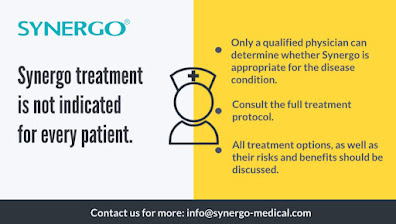Theories behind Bacillus Calmette-Guérin failure in high-risk non-muscle-invasive bladder cancer and update on current management
A new article written by Ms. Louise Paramore, Ms. Hanna Maroof and Mr Ahmed Ali, Clinical Lead, from the Department of Urology, Frimley Park Hospital NHS Trust, discusses in depth the mechanisms of action and pathophysiology of BCG, potential theories behind BCG failure, and the scope of novel treatments for this surgical conundrum.
Published on Cancer Pathogenesis and Therapy
Synergo technology was presented in the article as one of the treatment options for patients who develop recurrence during BCG treatment or those who cannot tolerate the side effects.
Synergo technology provides an advanced
therapeutic option for NMIBC patients. The treatment is based on local RF
and tissue hyperthermia in combination with simultaneously cooled chemotherapy
instillation.
RF is delivered locally to the bladder wall
via a miniaturised, embedded antenna.
RF has been shown to have a selective effect
on cancer cells. Synergo’s powerful combination enables the drug to access
those cells and in-between them, resulting in higher cell uptake and a higher
rate of DNA bonding.


